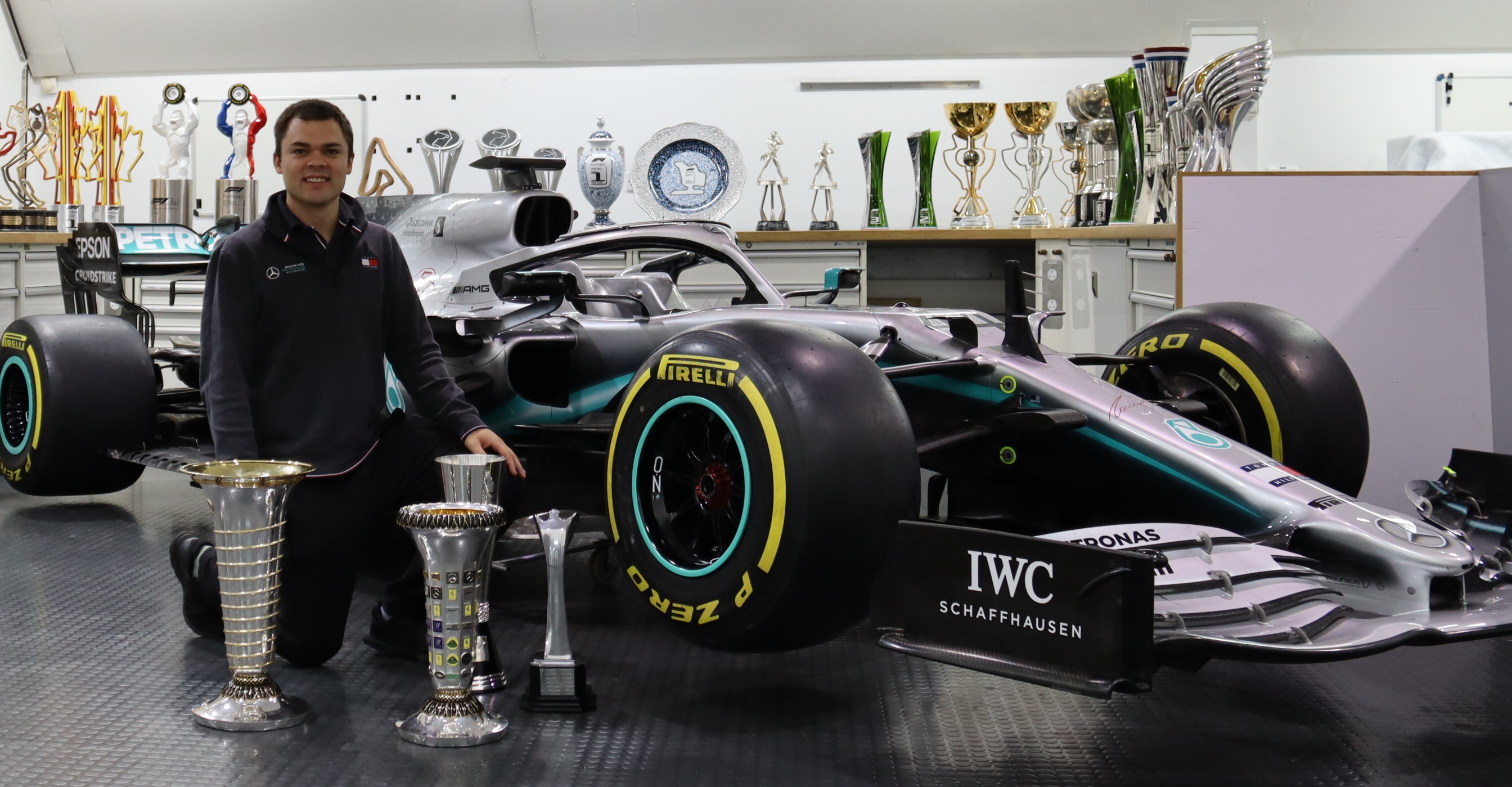
Engineering at Alberta alumnus Benjamin Dwyer joined the our Formula SAE team, and built his career in motorsports from there. Today he is a test and development engineer with the Mercedes-AMG Petronas Formula 1 Team.
Photo courtesy Ben Dwyer / Mercedes-AMG Petronas Formula 1 Team
Edmonton-Growing up, Benjamin Dwyer wanted to know how things worked. Specifically cars. Now, the Engineering at Alberta Graduate is a test and development engineer with the Mercedes-AMG Petronas Formula 1 Team: one of the most successful teams in the recent history of the sport.
Like many engineering students, Dwyer did not know exactly where his degree would take him. But he gained formative experience when he joined the Engineering at Alberta Formula Student team.
"For me, as part of the team, a lot of learning happened outside the lecture halls," said Dwyer.
Each year the Formula Student team designs and builds a formula race car to compete in international motorsport competitions throughout North America. The bulk of the team's members are undergraduate engineering students who must apply and test their engineering expertise in real time in real situations. Working between classes, after school, and during weekends, the students benefit from the hands-on.
In a 2012 interview, Dwyer said that being a part of the Formula Student team enriched his education as an engineer.
"The ability to solve problems in many different ways, while always searching for the most efficient solution available, is one of the most valuable influences that have come from being a part of the team," he said.
After graduating in 2012 with a mechanical engineering degree, Dwyer began working with an Edmonton-based company that had sponsored the Formula Student race team.
"I learned a lot there," said Dwyer of his first job. "But I guess it made me realize that if I am going to be doing this for 30-odd years I want to be more interested in what I am doing."
Dwyer decided to pack up his life and move to the United Kingdom to attend Cranfield University's Master's of Science Advanced Motorsport Engineering program "with the end goal of eventually doing Formula 1 if at all possible."
Dwyer needed to work his way through the ranks of motorsport-proving his talents first as a volunteer in Formula 4, then as a simulation and project engineer with McLaren GT racing.
"I don't think any job would tie me down for 20 years in the same role," Dwyer said. "I'm always going to be looking for the next step, to push myself further. That was just part of the procedure-stepping through the ranks."
Eventually, Dwyer saw an opening with the Mercedes-AMG Petronas F1 Team and leapt at the opportunity to work in Formula 1, and it paid off when he got the call back to join the team.
"You always feel a bit nervous," he said. "It's viewed as the pinnacle of motorsport and you look at it and say, 'OK, I'm going to be a part of that now.'"
Unlike any other team sport, Formula 1 relies on entire staffs of scientists and engineers like Dwyer to design, manufacture, and maintain the racing machines.
"It's always a big team effort," said Dwyer. "No one person makes it happen."
With the closing of the 2019 season and its 21 races spread across 21 nations, the Mercedes-AMG Petronas F1 Team took home both the Drivers' and Manufacturers' Championships, cementing its legacy as the most successful team of the turbo-hybrid era.
Just as the team embraces a culture of continuous improvement, Dwyer has taken that same outlook and applied it to his own career development.
"In my view if you're not learning anything anymore, you're probably not in the right role anymore," he said. "There's always something else that you can improve not only yourself, but hopefully contribute something to the next car, the next project, the next whatever it is."